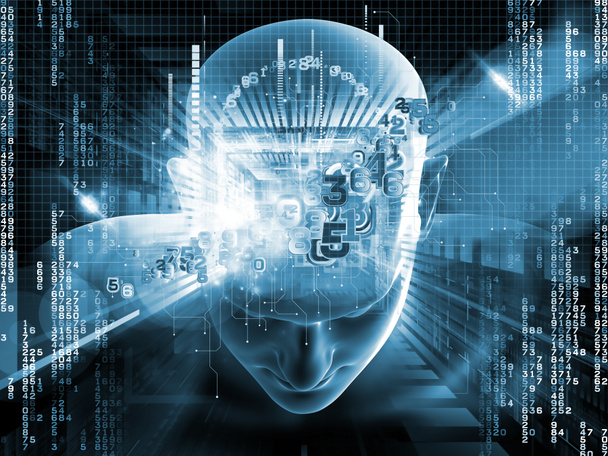In recent years, the world of sports betting has undergone a transformative change, driven by the integration of artificial intelligence (AI) technology. This merging of two seemingly unrelated domains has opened up new frontiers and possibilities for bettors, bookmakers, and sports enthusiasts alike. AI has not only refined the process of analyzing vast amounts of data but has also enhanced the accuracy of predictions, leading to smarter wagers and more informed decisions.

This article delves into the fascinating realm of AI sports betting, exploring its impact, benefits, challenges, and the potential it holds for the future.
The Evolution of Sports Betting
Sports betting has a rich history dating back centuries. What was once a pastime limited to local bookmakers and shady establishments has evolved into a global industry worth billions of dollars. Traditionally, sports betting relied heavily on human expertise and intuition to predict outcomes. However, with the advent of technology and the digitization of data, the landscape of sports betting experienced a significant shift.
Enter AI in Sports Betting
The introduction of AI in sports betting marked a turning point, where data-driven decisions started to dominate the scene. AI algorithms, equipped with machine learning capabilities, can process vast volumes of historical data, player statistics, weather conditions, and even social media sentiment analysis to make highly accurate predictions.
- Data Analysis: AI’s ability to crunch massive amounts of data in real-time provides a competitive edge for both bettors and bookmakers. By analyzing historical patterns and identifying hidden correlations, AI algorithms can spot trends that would be impossible for humans to detect.
- Predictive Models: Machine learning algorithms, such as neural networks and support vector machines, can construct intricate predictive models to forecast match outcomes, player performance, and other betting variables. As these models continuously learn from new data, they become increasingly accurate over time.
- Odds Optimization: AI-driven sportsbooks can dynamically adjust betting odds based on incoming data and market trends. This ensures that odds are always reflective of the most current information, reducing the bookmaker’s risk and optimizing the potential payout for bettors.
- In-Game Analysis: Real-time AI analysis during games has become a game-changer in sports betting. Algorithms can assess player performance, momentum shifts, and injury probabilities, enabling bettors to place strategic bets as the action unfolds.
Benefits of AI in Sports Betting
The integration of AI technology into sports betting offers numerous benefits for all stakeholders involved:
- Enhanced Accuracy: AI-driven predictions are based on data-driven insights, reducing reliance on mere intuition and increasing the accuracy of outcomes.
- Better Risk Management: Bookmakers can use AI to assess potential risks better and set odds accordingly, ensuring a balanced book and minimizing potential losses.
- Improved Betting Strategies: AI provides bettors with valuable information, helping them make more informed decisions and develop effective betting strategies.
- Real-Time Insights: The ability to access real-time data and analysis during games allows bettors to capitalize on emerging opportunities quickly.
- Increased Market Efficiency: AI streamlines the betting market, making it more efficient and responsive to changing circumstances.
Challenges and Ethical Considerations
While the integration of AI in sports betting presents exciting possibilities, it also comes with certain challenges and ethical considerations:
- Data Privacy: The extensive use of personal and sensitive data in AI algorithms raises concerns about user privacy and data protection.
- Addiction and Responsible Gambling: AI-powered betting platforms can potentially exacerbate gambling addiction issues, necessitating responsible gambling practices and interventions.
- Match Fixing: As AI-driven predictions gain popularity, the risk of match-fixing could increase if unethical individuals attempt to manipulate the algorithms or exploit vulnerabilities in the system.
- Dependency on Technology: Relying solely on AI predictions might diminish human judgment and intuition, which can still hold value in sports analysis and betting.
Future Prospects
As AI technology continues to advance, the future of AI sports betting appears promising:
- Personalized Betting: AI can cater to individual preferences and betting styles, offering personalized odds and suggestions to each bettor.
- AI vs. AI Betting: As AI becomes more prevalent in sports betting, the possibility of AI algorithms betting against each other arises, creating an entirely new realm of betting dynamics.
- Blockchain Integration: The integration of blockchain technology can enhance transparency, reduce fraud, and ensure fairness in sports betting.
- Regulation and Governance: The development of comprehensive regulations and governance frameworks will be crucial to address potential issues and protect the integrity of sports betting.

AI has revolutionized the world of sports betting, offering unprecedented insights and predictive capabilities. With enhanced accuracy, real-time analysis, and personalized betting experiences, AI has redefined the industry’s landscape. However, as AI continues to shape the future of sports betting, it is essential to address the ethical challenges and implement responsible gambling practices. By striking a balance between technological advancements and human judgment, AI sports betting can unlock new possibilities while maintaining the integrity of the sports and betting community.
Learn more at Wiki as well.